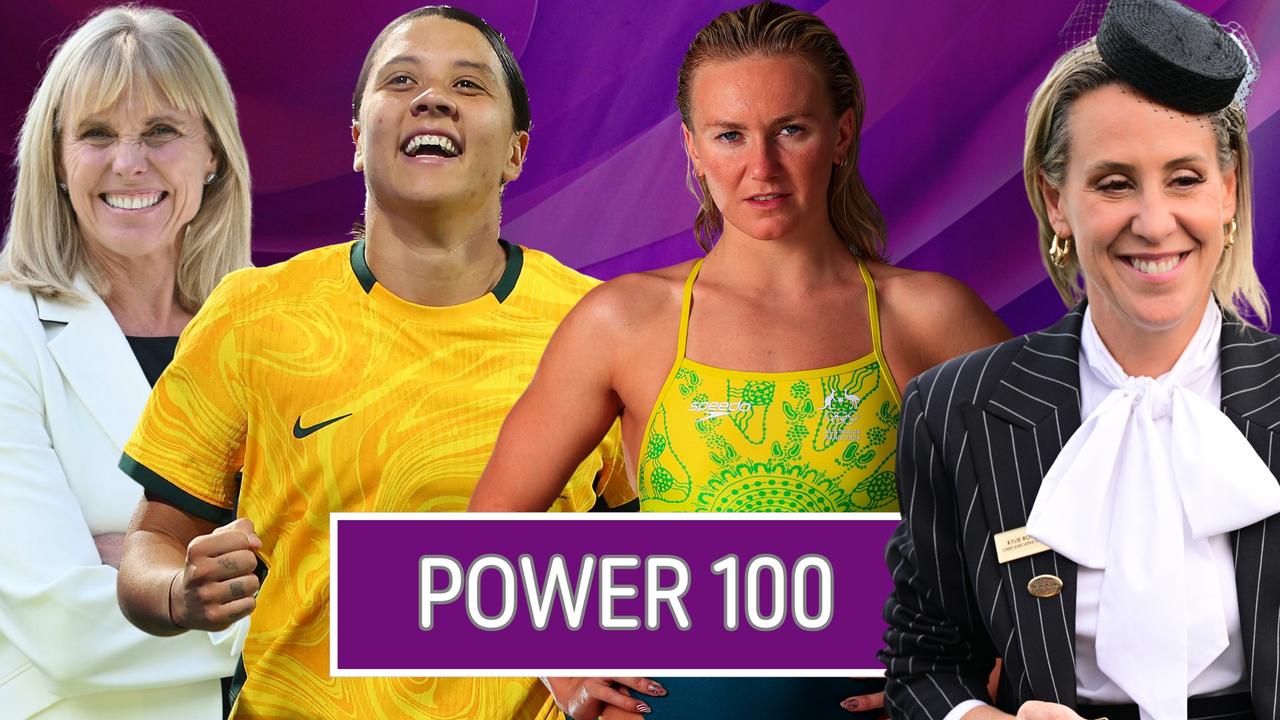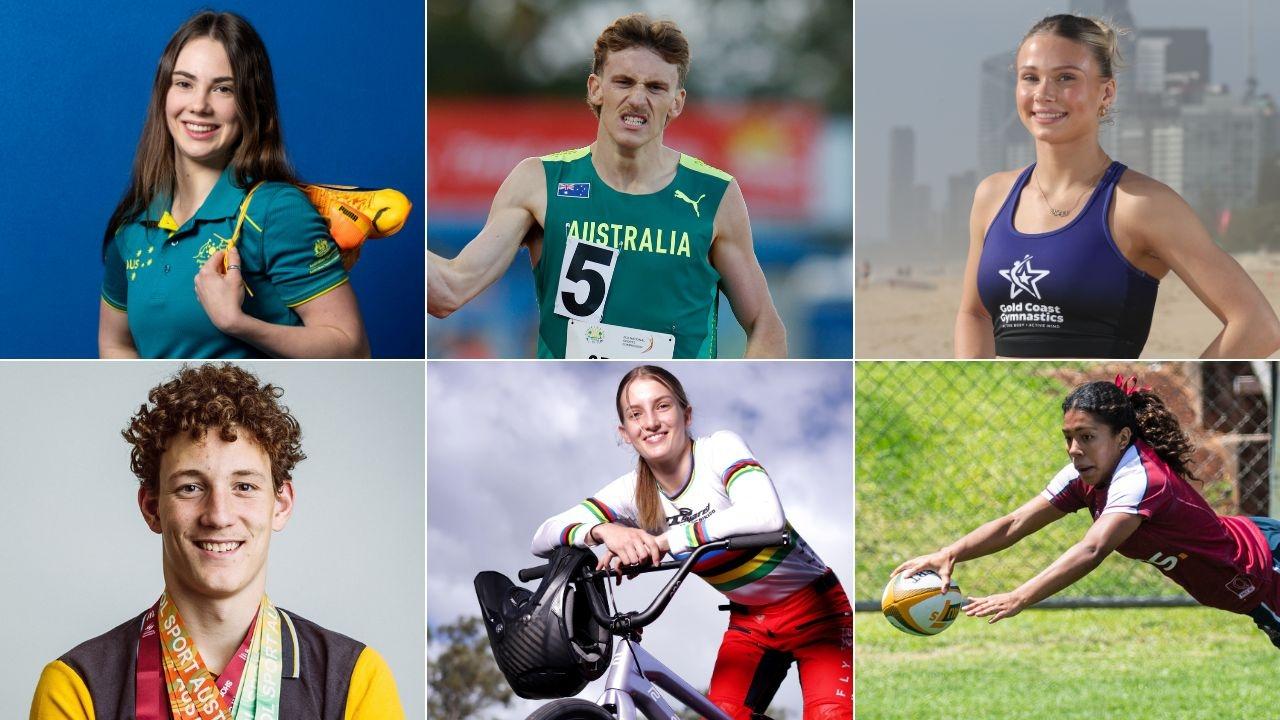Paralympic Games 2021: Danni Di Toro, Ryley Batt carry Aussie flag at opening ceremony in Tokyo
Despite many countries, including Australia, limiting their numbers, it didn’t detract from a special opening ceremony at the Tokyo Paralympics.

Paralympics
Don't miss out on the headlines from Paralympics. Followed categories will be added to My News.
The Tokyo Paralympics opened in a blaze of colour, pageantry and a reassuring message of hope to a world that desperately needs a distraction from the worsening global health crisis.
There was no attempt to avoid the elephant in the room as the trickle of representatives from 163 teams marched into a mostly empty national stadium that was custom built to accommodate 68,000 spectators.
The irony that the Tokyo Games have attracted more competitors than any Paralympics in history – a record 4403 athletes – wasn’t lost as most competing countries played it safe and cut the numbers marching at the parade..
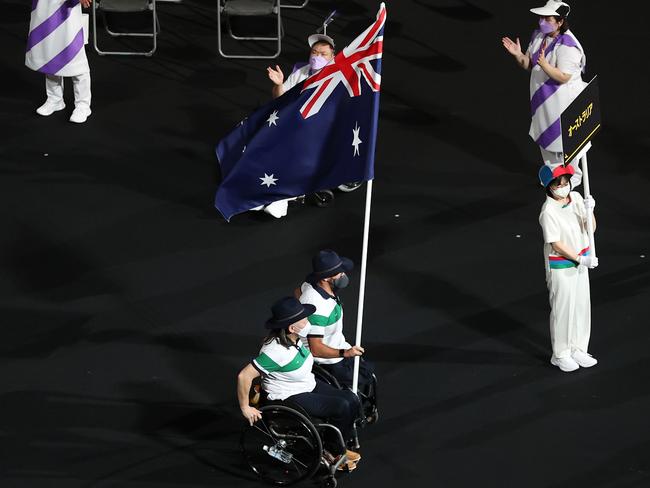
New Zealand - the same country that triggered a mass boycott of the 1976 Montreal Olympics when they toured South Africa at the height of apartheid - elected not to march at all, saying they were not willing to take any risk of anyone getting infected, even though the rate of positive tests among participants is extremely low at 0.09 per cent, including the Olympics.
The Australian team, which comprises a record 179 athletes plus officials, was represented by just three people: the joint flag-bearers Danni Di Toro and Ryley Batt, plus the chef de mission Kate McLoughlin, who made the difficult call that the rest of the team would watch the ceremony from the Village.
“We‘re here to compete. We’re here to perform for Australia,” McLoughlin said. “And while it’s far from ideal, no marching, safety is our number one priority for this team.”
Di Toro, competing at her seventh Paralympics and wearing an Akubra said: “It’s pretty surreal to be honest. I think six months ago we didn’t know if we’d be here at all so it’s an incredible privilege.
“This is my family. This is our Paralympic community. These are the people that we reach out to and lean on in all the good times and the tough times.”
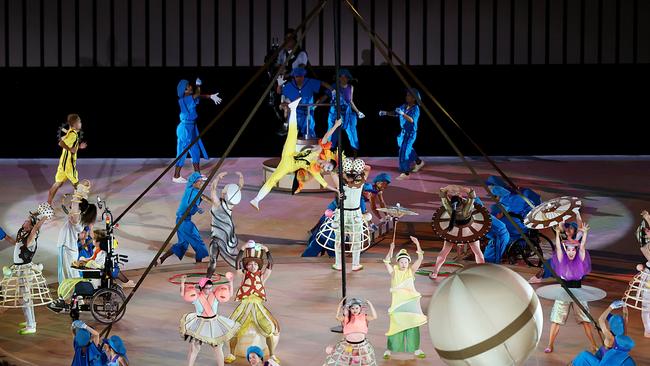
Batt, a two-time gold medallist in wheelchair rugby said: “I think there’s a lot of negativity in the world at the moment with coronavirus and the Paralympics is a huge positive.”
In keeping with tradition, the Games were declared open by the Japanese Emperor Naruhito after a dazzling ceremony that followed the premise of moving forward under the theme “We have wings”, symbolising the struggle and resilience of everyone with a disability.
The refugee team was promoted to the front of the parade of nations, ahead of Greece, while the Afghanistan flag was carried by a volunteer because none of the country’s athletes made it to Japan after the Taliban seized control of their homeland.
The Australians marched 30th in the order, which followed the Japanese alphabet, with the host nation going last.
While the ceremony included a poignant commitment to human rights, the narrative centred around the aspirations of a little one-winged plane that wanted to fly but was unable to, until eventually being lifted by the winds of hope.
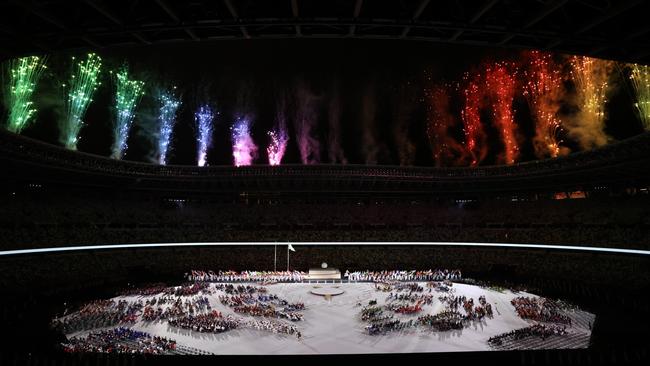
Both Hashimoto Seiko, the President of the Tokyo organising committee, and Andrew Parsons, president of the International Paralympic Committee, addressed the expected massive worldwide television audience before the Emperor formally opened the Games as the torch was carried into the arena for the lighting of the cauldron.
Tristan Knowles, a five-time Paralympian in wheelchair basketball who watched the ceremony from the Athletes’ Village, said the Australian team was primed for one of its best Paralympic Games ever.
“We can‘t wait to rip in,” he said.
“We‘re Australian, so we’re very, very humble and modest but we’re here to have a real crack at this.”
Competition gets underway on Wednesday with Japanese officials performing a last minute backflip by allowing 130,000 schoolchildren to watch events live after all spectators were banned from the Olympics.
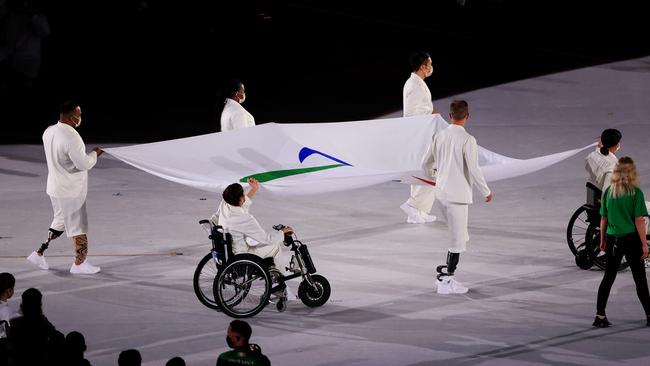
Australia is expected to win up to 100 medals in total and finish in the top five countries in the world, though no-one is really sure how well the team will do after such a troubled build up.
While Australia’s athletes have mostly been able to continue training during the 12-month postponement, the international travel restrictions, recurring border closures and lockdowns have played havoc with preparations, but failed to dent expectations the team will replicate the performances of the Olympic team that helped raise the spirits of everyone in Australia.
“I think we‘re all going to look back on these Games and think, wow, look what we did,” McLoughlin said.




